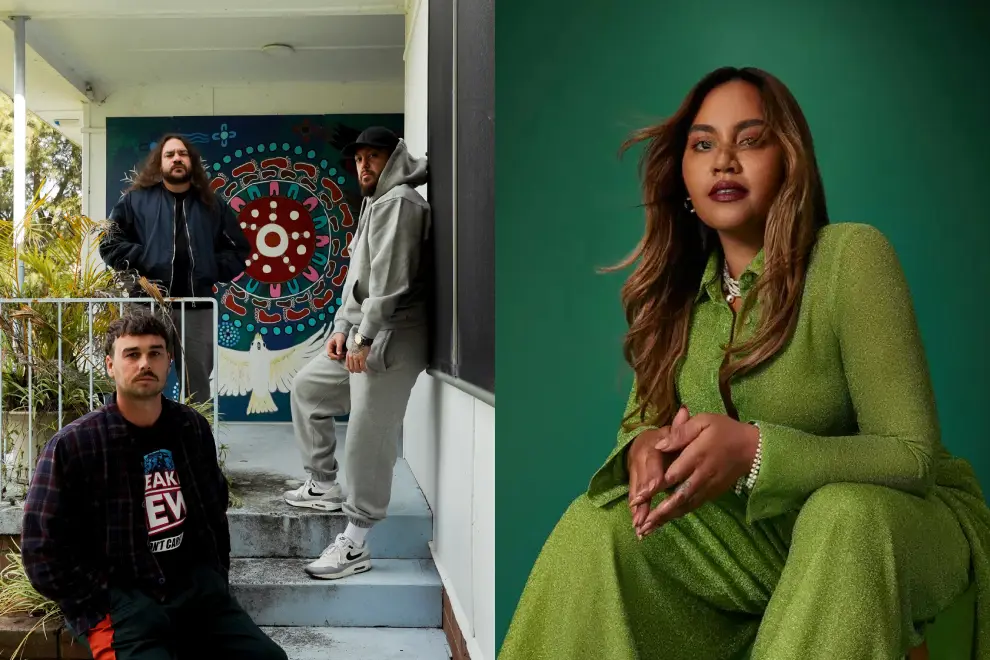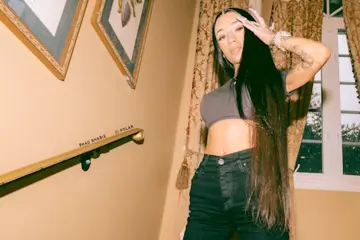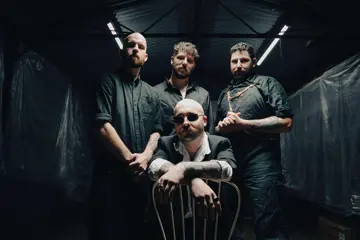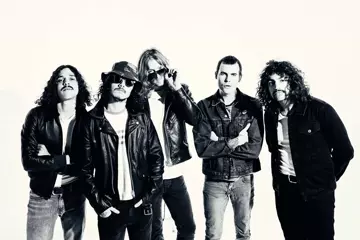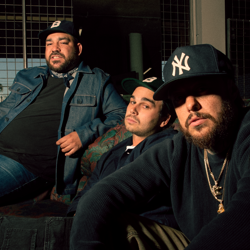 3 Percent
3 PercentIt’s tough these days as a music programmer or editor. You’ve got a million songs coming at you. You’ve got a thousand data points to look at. You’re trying to balance priorities from labels. You’re trying to figure out what listeners and readers want when they don’t even know.
I’ll put my hand up. Sometimes, you have SO many priorities, emails and pressures coming at you that it’s easy to revert to checking a chart or looking at stats to make decisions. But sometimes, you need to tap yourself on the shoulder to listen to a song with your ears rather than your brain.
This week’s 3% album release is a great time to check ourselves. The album itself is a triumph. It’s poignant, means something AND manages to tread a very, very fine line between being accessible and being deeply relevant. And it does an incredible job of it. I’m not going to go into the cultural relevance or the extreme importance of this message being given a voice twelve months after our country told First Nations people they couldn’t have one. I’m sure someone else will have a crack at that (and I hope they do).
What I’ll focus on is why we’re not focusing on the Jessica Mauboy-featuring Won’t Stop in a commercial sense. Let’s look at it commercially— it’s got one of Australia’s best-known personalities and, frankly, best voices singing the hook. It isn’t sweary. It’s got a powerful message, but it’s not saying anything offensive to the mainstream. Sure, it’s a rap song, but there’s plenty of those cycling around on commercial radio, and this is VERY eloquently done with a lot of chorus. It’s an edgy pop song that will appeal to teens while also keeping Mum happy.
Don't miss a beat with our FREE daily newsletter
Are we worried that it might be ‘too political’? Fuck that. Midnight Oil was political, and banging hooks and undeniable songs meant that it was embraced. It didn’t stop it cutting through, it’s what made it cut through. Most of the audience didn’t notice anyway, and that‘s the brilliance of music. It gets messages through in a way people will digest. To the masses, it’s just a good tune, and if people listen enough to really hear the message, surely that’s a good thing?
It’s bright. It’s light. It makes you want to tap the steering wheel on the way to work. It’s bang on three minutes long. It’s everything a programmer dreams of.
DSP playlists have been kind without being overly generous. A month in, and it’s only on three Spotify playlists, languishing in the almost invisible spots of #78 and #77 on Local Hype and Pop n Fresh, having debuted at #8 and #9 on the lists. It’s also still very high on the fantastic but less trafficked Blak Australia.
Over on Apple Music, it’s a similar story, with New Fire and Future Hits still including it in the lists a month in. It did get an early run in New In Pop and A-List Pop, which is great, but the positions weren’t exactly hit-making. It only lasted a week in Rap Life.
Over on the radio, it’s getting an understandable airing on triple j, where more commercial sounds are the norm now. Having said that, eight to ten spins a week is hardly hit-making rotation. That’s a broader question about the station’s rotations generally, but still, it’s getting a national platform, at least. It’s getting a good run on Cada with 20+ spins a week, but that platform is not what it once was and is hardly going to create a hit on its own.
Commercial radio obviously received the track. It was toyed with on the Australian music show on ARN regional networks, given a late-night spin on Nova, and is getting good support from Geelong‘s K-Rock—ironically, one of the last truly independent commercial radio stations left in a P1 or P2 market.
Want to know why Australian music isn’t cutting through? It’s this— a song like this can come out, and we all sit around navel-gazing, wondering why Australian music isn’t cutting through rather than looking at the platforms we have to make a difference. We as an industry have TOYED with this song, we have not actually supported it.
It hasn‘t had a chance to know whether an audience likes it or not because not enough people have heard it in the first place. It‘s sitting on 60,000 Spotify streams, hardly enough to cut through. It’s because when it was playlisted, it either didn’t appear on the major ones or it was quickly shuffled out of the ones that it did get. Commercial radio didn’t give a fuck and either didn’t play it at all or gave it some spins on regional nights. Perhaps we should have made a bigger deal of it on The Music a month ago? We ALL need to look at what we could be doing rather than just pointing at the problem.
If this had been a major-label OWNED release, would it have faired better? If there are strings they can pull (and they are getting more and more invisible by the day), perhaps it might have, but if we in the media had been listening with our ears instead of our data, it might have stood a chance.
It’s a familiar artist, three minutes on the dot. Banging, memorable chorus, but one month in, and it simply hasn’t been afforded enough of a chance to find an audience. That’s ok. Maybe I’m wrong about this one- I‘m happy to be- but point to me the new Australian artist that hasn‘t before had a hit that we in the media HAVE all come together around and backed in. Budjerah comes to mind last year. But geez, should we really have to go back to last year to find one?
The data we get on international tracks and artists, OF COURSE, is stronger than local songs. They are being funded with proper marketing budgets in the US and are already being smashed through media Australians consume from overseas. Ask anyone at radio about testing new songs, and they’ll tell you that you can’t get a decent read on the data until it’s been spun a hundred times. When was the last decent Australian song that was afforded that primetime radio or top-of-mainstream-playlist privilege?
This week, ARIA launched Amplify in a bid to work out how to cut through to the mainstream and rise against the noise. It’s a fantastic initiative, but let’s call a spade a spade.
I say this as someone with skin in the game that sometimes needs to be tapped on the shoulder as much as any media does. Let’s stop patting each other on the back for reaching quotas and implementing off-broadway opportunities for artists. If we want to band together to make an Australian hit, we need to go for the jugular. Pick a new Australian artist and actually back it using EVERYTHING at our disposal, not just fringe support. Maybe it’s not 3%, but if that’s not your jam, choose one that is.
Take our ears out of storage, and when we hear a song that we think could be a hit, we back it in with enough force to actually make a difference. Be prepared to be wrong. Call your mate at the opposition and get them on board, too. Explain to your boss why this is a good idea. Spin it in breakfast every day for a week. Put it at the top of every playlist you can possibly control. Do the feature that needs to be written. But do it together. The sad reality is that labels don‘t have the budget to create the coordinated attacks they did in the past, so we shouldn’t be waiting around for that to be our lead.
As DSPs, radio stations, and publications, we actually do have some power. Sure, the world is not homogenous anymore, and no one media has the gatekeeping power they once did, but if we decide that there’s nothing we can do, then as an industry, we’re admitting that we’ve given up on Australian music.
Forget what label it’s on. Forget who serviced it to you. Just listen, use your judgement as an editor, publisher, and music director, and rally around something local you believe in. Where are you really making a difference in turning around the Australian music visibility problem for new artists?

